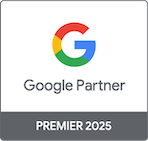
Google Ads CPA bidding: How cost per acquisition works and when to use it
Abisola Tanzako | Jun 26, 2025

Table of Contents
When properly configured, CPA bidding helps businesses reduce cost-per-lead by up to 20% (WordStream, 2023). Google Ads plays a crucial role in digital advertising by helping companies connect with their target audience and grow their ROI.
Among different advertising actions, CPA plays the most significant role in determining if a campaign is successful and profitable.
CPA helps businesses measure the average cost associated with each action taken, which is necessary for checking their overall return on investment.
This guide covers what CPA is, how to set it up, its pros and cons, and best practices.
How cost-per-acquisition bidding works in Google Ads
CPA in Google Ads means Cost Per Action and is the typical price paid by an advertiser when someone takes an action from their ad. CPA focuses on the price charged for what matters, like a purchase, reaching out through a form, or registering for an account, while CPC pays for each ad click.
To find the CPA, you should divide the total spent on conversions by the total number of conversions. Therefore, if a campaign is responsible for 20 conversions and spent $1,000, the cost per conversion is $50.
How it works
- Set a Target CPA: You choose how much you will pay for a conversion (e.g., $20 per sale).
- Google predicts conversions: Using machine learning, Google analyzes user behavior, device, location, time of day, and other factors to predict which clicks are most likely to convert.
- Automated bidding: Google automatically adjusts your bids in real time, bidding higher on users who are more likely to convert and lower on those less likely to convert while aiming to stay near your target CPA.
Example
If you spend $100 and get 5 conversions:
Your CPA = $20 ($100 ÷ 5) matches your target.
Benefits
- Eliminates the need for manual bidding
- Focuses on results (conversions), not just clicks
- Helps manage and control acquisition costs
- Uses real-time signals to optimize ad performance
Challenges
- Requires accurate conversion tracking
- Works best with at least 15–30 conversions per month
- It may take some time to optimize during the learning phase
Why CPA matters in Google Ads
CPA helps advertisers by showing how effectively a campaign achieves financial goals. Here are the reasons why CPA matters:
- Maximizes the use of ROI: CPA helps businesses measure how their ads are helping them achieve specific goals.
- Guides on how resources are allocated: By analyzing CPA, marketers can spot the best-performing campaigns, ad groups, or keywords and budget them first.
- Boosts campaign management success: Looking at your cost per action (CPA) makes it easier to see what ads or pages are not performing, enabling you to improve with more data.
- Supports scalability: If the CPA is low, businesses can grow their campaigns while making profits since conversions are less expensive.
Factors influencing Google Ads CPA
Some aspects affect how CPA performs in Google Ads campaigns. Knowing about these factors gives advertisers chances to lower costs and do better.
1. The process of industries and competition: CPAs vary from industry to industry because of varying levels of competition and the value of conversions. From August 2017 to January 2018, running legal ads on Google’s Display Network cost an average of $39.52, whereas ads on the search network provided an average CPA of $86.02, according to Statista.
2. Keyword selection: A company’s CPA depends mainly on its choice of keywords. Keywords that people use when looking to buy, like “get car insurance online”, generally have a higher CPC, but they can cut your costs because they are likely to lead to a sale.
3. How good and relevant are the advertisements? It assesses the relevance of an ad, its landing page, and the predicted number of clicks it will receive. When quality scores are higher, the cost per click and acquisition decrease.
4. Experience on the company’s landing page: Strong optimization of your landing page makes clicks more likely to convert into results. According to Forbes, more than half (53%) of users will give up using a mobile site if it takes three seconds or more to load, proving that having a mobile-friendly design is very important.
5. Choose your audience and make a bidding plan: Choosing the right target CPA or Maximize Conversions bidding strategy and accurately targeting your audience can reduce your CPA. However, not choosing your audience carefully and overdoing your bidding will result in a higher CPA, so be sure to target wisely and let the machine do the bidding.
Strategies to optimize Google Ads CPA in 2025
To achieve a better CPA, a mix of strategies, data examination, and regular improvement is needed. Here are some tips for reducing costs in Google Ads.
1. Try to use target CPA bidding: With this bidding method, machine learning chooses the best bids to help you achieve or reach below your chosen CPA. According to Statista, improved automation in Google Ads can lower the median CPA by 60% if it is combined with good targeting.
2. Optimize which keywords you want your page to appear for: Pick long-tail keywords that indicate a higher chance of someone converting. For instance, rather than searching for “shoes”, make your bid “buy women’s running shoes online.” The research shows that long-tail keywords, which include 29% of the most searched keywords, tend to have less competition and better results, bringing down the cost per acquisition (CPA) in Ahrefs.
3. Boost the Ad score of your Ads: Ensure your ad messages interest users and include good action prompts. Ad extensions such as sitelinks, callouts, and structured snippets can make your ads easier to notice and increase the chance someone will click on them.
4. Improve your landing pages: Check that your landing pages load fast, are easy to use from mobile devices, and match the ad you are displaying. Use direct buttons, try not to distract your visitors, and add reviews and other signs of trust. According to Forbes, optimizing for mobile gives businesses 22% more clicks from Google searches.
5. Divide your audience for better precision: Target your ads to specific groups based on their demographics, what they like, or how they act. Statista says most Google Ads clicks are from mobile phones, so focusing on mobile audiences is vital.
The role of mobile optimization in CPA
Since 58% of Google searches and 61.9% of Google Ads clicks happen on mobile, your business needs to be mobile-friendly. If mobile users feel frustrated or things take too long, they can leave, increasing costs per acquisition.
Here’s how to optimize your website for mobile devices:
- Creating landing pages that work well on mobile devices: Make sure each landing page takes less than three seconds to open and contains prominent buttons that are easy to press and require minimal scrolling.
- Location-based targeting: Ensure that the ads you deliver to mobile screens are relevant to their location. According to Forbes, including a business location in an advert makes users click on it 80% more often.
- Ad formats made for mobile phones: Responsive search ads and mobile-preferred extensions help make sure your ads are noticeable on smaller screens.
Common mistakes to avoid with CPA campaigns
These mistakes should be avoided to regulate the CPA:
- Broad match keywords: Not adding negative keywords with broad match can bring in clicks that have no interest in your product, which increases your CPA.
- Overlooking quality score: Scores too low for quality result in higher CPC and increased CPA.
- Poorly designed landing page: Without optimization, landing pages get plenty of traffic but do not convert many leads.
- Not focusing on data analysis: Your CPA could easily rise if you neglect to monitor campaign performance.
Achieving success with Google Ads CPA in 2025
Utilizing Google Ads CPA allows marketers to create campaigns that bring in a high return for a low cost. With Target CPA bidding, better keyword planning, improved landing pages, and AI help, advertisers cut CPA and increase conversions.
According to Statista, using averages such as the CPA of $48.96 for search ads allows you to pick your initial goals, but real improvements happen when you adjust, evaluate, and test what you learn.
FAQs
Q.1 How can I lower my CPA in Google Ads?
Lower CPA by using target CPA bidding, focusing on high-intent keywords, maximizing ad quality scores, optimizing landing pages, using negative keywords to avoid irrelevant clicks, constant campaign monitoring, and A/B testing.
Q. 2 How does mobile optimization affect CPA?
Optimizing for mobile is essential since 58% of Google searches and 61.9% of ad clicks happen on mobile (Statista). By having fast, mobile-ready landing pages and targeting locations in your ads, CPA can drop due to the improved number of conversions.





